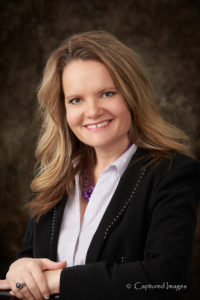Executive Order 20-16 makes Kansas 22nd state to issue statewide stay-home measure
As part of ongoing efforts to limit the spread of novel coronavirus in Kansas, today Governor Laura Kelly issued Executive Order 20-16, making Kansas the 22nd state in the nation to institute a temporary, statewide stay-home order. It will exist in conjunction with the Kansas Essential Function Framework for COVID-19 response efforts and will take effect at 12:01 a.m. on Monday, March 30. The measure will be in place at least until Sunday, April 19.
“Our modeling continues to suggest that the number of confirmed positive coronavirus cases in Kansas could reach as high as 900 over the next week,” Kelly said. “While I left these decisions to local health departments as long as possible, the reality is that the patchwork approach that has developed is inconsistent and is a recipe for chaos and, ultimately, for failure in our statewide fight to slow the spread of COVID-19.”
Under Executive Order 20-16, Kansans are directed to stay home unless performing one of the following essential activities:
- Obtaining food, medicine and other household necessities;
- Going to and from work at a business or organization performing an essential function as identified in the Kansas Essential Function Framework;
- Seeking medical care;
- Caring for children, family members or pets, or caring for a vulnerable person in another location;
- Engaging in an outdoor activity, provided individuals maintain a distance of six feet from one another and abide by the 10-person limitation on gathering size.
“I know this is hard, and I can’t tell you how much I wish it weren’t necessary,” Kelly said. “But we have a small window to ensure that Kansas does not suffer the same terrible fate of other hard-hit states like New York and Missouri. We’ve all got to do our part to help stop the spread of the disease. Stay home. Stay Safe.”
In a public address to Kansans on Saturday morning, Kelly explained that this action became necessary for three key reasons:
- To provide statewide uniformity in response efforts;
- To prevent overwhelming hospitals – especially rural hospitals – who may not have the same capacity to handle an influx of COVID-19 patients;
- To buy Kansas more time as the state officials work with federal partners to secure badly needed protective personal equipment (PPE), additional ventilators and COVID-19 testing supplies.
Kelly also commended federal efforts in recent days to support state and local response efforts in the form of an historic emergency relief package. More details about implications the federal stimulus bill will have for Kansas will be released as they become available.
The executive order can be viewed here: https://governor.kansas.gov/newsroom/executive-orders/
Please visit kdheks.gov/coronavirus for additional virus-related information, and visit getkansasbenefits.gov for federal stimulus benefits updates or to file for Unemployment Insurance benefits.

